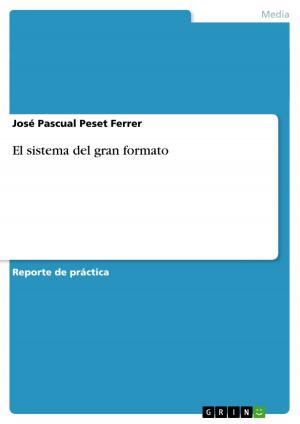Multiple Iago - The Character and Motives of Iago in Shakespeare's Othello
The Character and Motives of Iago in Shakespeare's Othello
Fiction & Literature, Literary Theory & Criticism, British| Author: | Pia Witzel | ISBN: | 9783638524728 |
| Publisher: | GRIN Publishing | Publication: | July 21, 2006 |
| Imprint: | GRIN Publishing | Language: | English |
| Author: | Pia Witzel |
| ISBN: | 9783638524728 |
| Publisher: | GRIN Publishing |
| Publication: | July 21, 2006 |
| Imprint: | GRIN Publishing |
| Language: | English |
Seminar paper from the year 1999 in the subject English Language and Literature Studies - Literature, grade: 1,0, University of Dusseldorf 'Heinrich Heine' (Anglistisches Institut), course: Shakespeare's Romeo and Juliet and Othello, the Moor of Venice, 16 entries in the bibliography, language: English, abstract: Introduction There has been a long critical debate about the figure of Iago in Shakespeare`s Othello and especially about his motivation. Most complex of all for actors and critics is the Iago problem. This villain is much more dangerous than Cinthio`s. He not only betrays the Moor and the Captain (Cassio); he injures everyone in his vicinity. How can so evil a man be plausible? How can he win the confidence of so apparently noble a man as Othello? And more important, what is his motivation? Why should any man hurt others so much? Is he simply a dramatic mechanism? A symbol of the devil? The devil himself? Or is he in fact a good man who has been provoked to revenge by wrongs done him? Was he unfairly denied promotion by Othello? Cuckolded by him? By Cassio? Finally, how can a character who does so much wrong involve audiences so deeply in his fate? The controversy has produced many different views and, rereading them, one could get the impression that Iago has become a real person with real traits of character and that he is responsible for what he has 'done', and some critics withdraw more and more from the original text. Therefore any consideration of Iago`s or any other character refers to his 'character' as a stage personage in Shakespeare`s Othello. After seeing the bulk of literature written on the character of Iago, one tends to agree with Adamson: So many critics over the years have made so much sense (not to mention nonsense) of Iago that one naturally hesitates to dig over the plot again. Criticism on Othello is very diverse. Following are a few examples of the manifold interpretations of Iago`s character.
Seminar paper from the year 1999 in the subject English Language and Literature Studies - Literature, grade: 1,0, University of Dusseldorf 'Heinrich Heine' (Anglistisches Institut), course: Shakespeare's Romeo and Juliet and Othello, the Moor of Venice, 16 entries in the bibliography, language: English, abstract: Introduction There has been a long critical debate about the figure of Iago in Shakespeare`s Othello and especially about his motivation. Most complex of all for actors and critics is the Iago problem. This villain is much more dangerous than Cinthio`s. He not only betrays the Moor and the Captain (Cassio); he injures everyone in his vicinity. How can so evil a man be plausible? How can he win the confidence of so apparently noble a man as Othello? And more important, what is his motivation? Why should any man hurt others so much? Is he simply a dramatic mechanism? A symbol of the devil? The devil himself? Or is he in fact a good man who has been provoked to revenge by wrongs done him? Was he unfairly denied promotion by Othello? Cuckolded by him? By Cassio? Finally, how can a character who does so much wrong involve audiences so deeply in his fate? The controversy has produced many different views and, rereading them, one could get the impression that Iago has become a real person with real traits of character and that he is responsible for what he has 'done', and some critics withdraw more and more from the original text. Therefore any consideration of Iago`s or any other character refers to his 'character' as a stage personage in Shakespeare`s Othello. After seeing the bulk of literature written on the character of Iago, one tends to agree with Adamson: So many critics over the years have made so much sense (not to mention nonsense) of Iago that one naturally hesitates to dig over the plot again. Criticism on Othello is very diverse. Following are a few examples of the manifold interpretations of Iago`s character.















